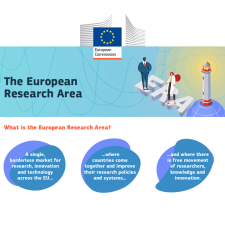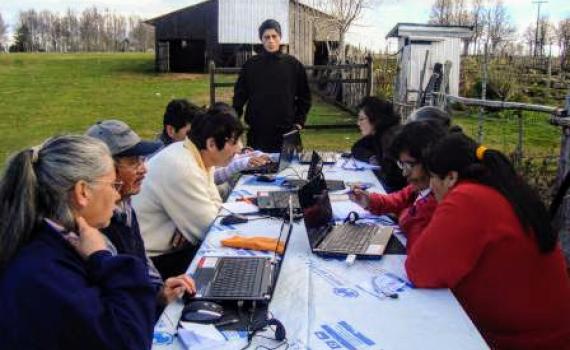
The EIFL Public Library Innovation Programme (EIFL-PLIP) was launched with a grant from The Bill and Melinda Gates Foundation in November 2009. The programme aimed to spark innovation in public libraries in developing and transition economy countries. Ramune Petuchovaite, EIFL-PLIP Manager, reflects on a decade of EIFL-PLIP.
SMALL GRANTS TO SPARK INNOVATION
“When EIFL-PLIP supported the 3D printing project at our library in 2014 it was completely unknown territory for us. Today the 3D service is still alive and kicking, and our small digital technology ‘Lab’ now also has a PlayStation, VR headset HTC Vive, robotic equipment for kids, microbit microcomputers that you can borrow.” - Kristian Benic, Marketing and Project Management Associate, Rijeka Public Library, Croatia.
EIFL-PLIP’s first activity was to organize an open competition to fund pilot projects in which public libraries in developing and transition economy countries used digital technology to meet community information needs. We combined financial support with capacity building, providing grantee libraries with training in how to evaluate the impact of their projects, how to communicate the results, and how to advocate for further support to sustain the new services.
Starting small, with funding for 12 projects in 2010, our programme quickly grew to include some 50 projects in 27 countries in Africa, Asia, Europe and Latin America.
The results of these small grants (ranging from 5,000 - 30,000 USD) have far exceeded our expectations. Almost all of the projects we supported have grown to become fully-fledged, sustainable public library services. Public libraries are teaching people to use computers and the internet (ICT); connecting farmers to sources of agricultural information, subsidies and markets; encouraging unemployed and vulnerable people to get jobs; improving health; helping students to improve their marks at school, and introducing children to essential skills for the digital era, like robotics, computer coding and web design.
The projects initiated with EIFL-PLIP support provided real evidence of how public libraries, using technology, could contribute to development, and inspired other libraries to introduce similar services.
“We expected only financial assistance when we were awarded a grant from EIFL-PLIP, but the support we received was beyond expectations. We joined a network of the most innovative libraries worldwide, had an opportunity to participate in common events, gained knowledge in often subtle, yet complex areas, such as impact assessment of projects and practices, publicity of results, recruitment and engagement of new library members.” - Laima Lapiniene, Head of the Information Resources and Innovations Department, Utena 'A&M Miskiniai' Public Library, Lithuania.
CHANGING PERCEPTIONS OF PUBLIC LIBRARIES IN AFRICA
“I have witnessed massive transformation of public libraries in Kenya. In the past, they were seen as reading rooms. Today, they are spaces offering free access to ICT and many different opportunities. EIFL has been with us all the way on this incredible journey.” – Richard Atuti, Director, Kenya National Library Service.
In 2010, we commissioned a major study - the first of its kind - into perceptions of public libraries in Africa (research was conducted in Ethiopia, Ghana, Kenya, Tanzania, Uganda and Zimbabwe). In all six countries, the study found that public libraries were seen as spaces for books and for children to do their homework. Very few people (including government officials) associated libraries with ICT or community development. The study also found that almost no public libraries had computers or internet for public use, and that public librarians lacked computer skills.
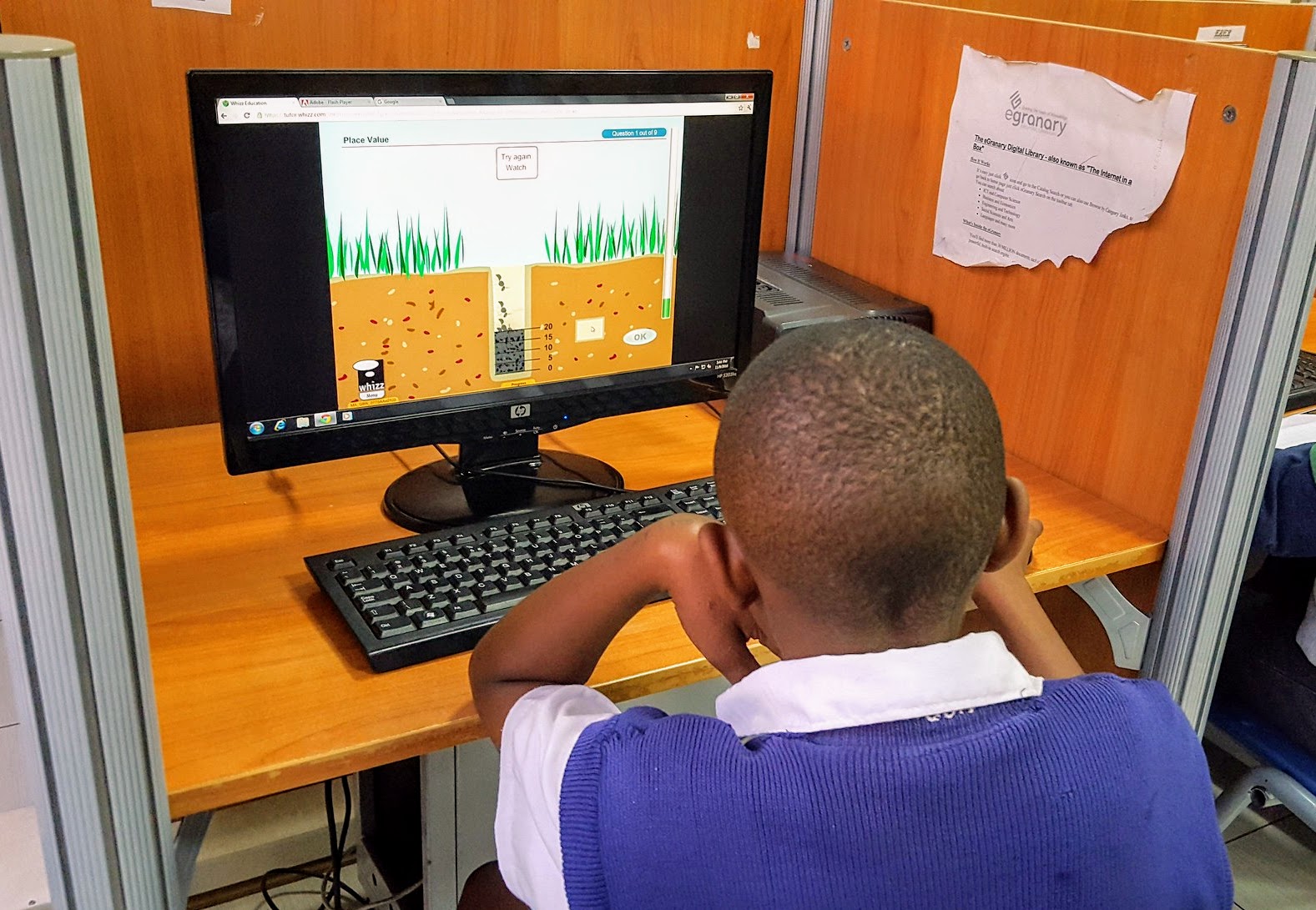 Informed by the findings of the study, EIFL-PLIP provided small grants to public libraries in Ghana, Kenya, Uganda and Tanzania to pilot innovative services that would demonstrate their contribution to development across several areas - health, agriculture, education, addressing unemployment and narrowing the digital divide. In addition, we supported library groups, building their advocacy and communications skills and enabling them to engage in advocacy campaigns aimed at changing perceptions of public libraries among government officials.
Informed by the findings of the study, EIFL-PLIP provided small grants to public libraries in Ghana, Kenya, Uganda and Tanzania to pilot innovative services that would demonstrate their contribution to development across several areas - health, agriculture, education, addressing unemployment and narrowing the digital divide. In addition, we supported library groups, building their advocacy and communications skills and enabling them to engage in advocacy campaigns aimed at changing perceptions of public libraries among government officials.
As a result, in Kenya, the Communications Authority of Kenya equipped 46 public libraries in the Kenya National Library Service (KNLS) network with computers and the internet. Today, all 62 KNLS libraries are offering free public access to ICT and are training members of their communities to use ICT and mobile phones. They are using Kindles and tablets for reading and educational games, and are also delivering connectivity to poorly-resourced schools and remote locations. Similar transformations are taking place in other countries.
EMPOWERING PUBLIC LIBRARIANS IN AFRICA
“EIFL-PLIP training opened my eyes to the need to initiate programmes that will benefit the local community, and not just concentrate on the library environment. - Hedwich Isaack, Senior Librarian, Omaruru Library, Namibia.
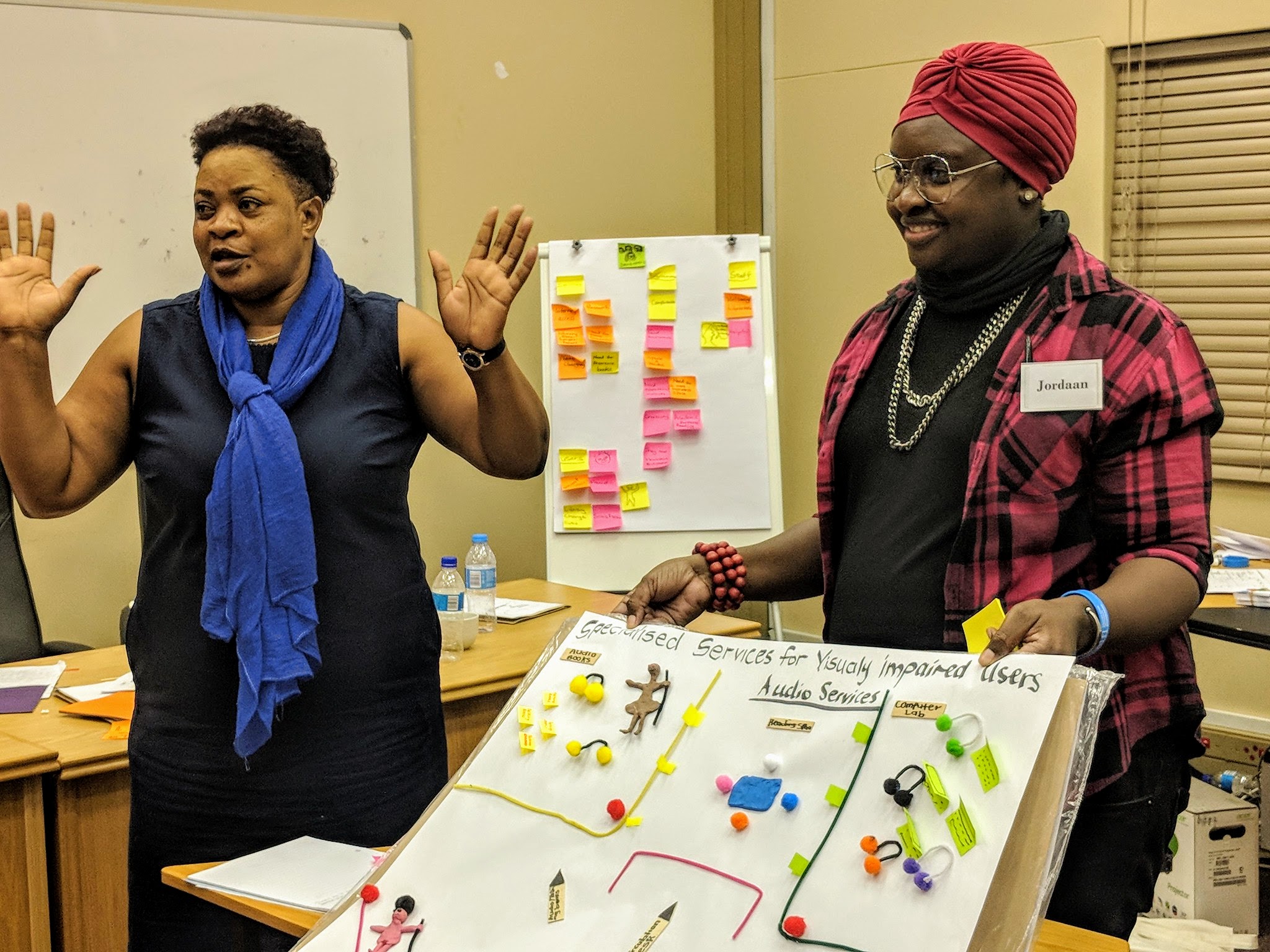 While conducting the study into perceptions of public libraries in six countries in Africa, we realized that we could make a lasting impact on the public library field by building public librarians’ capacity and skills to transform library services.
While conducting the study into perceptions of public libraries in six countries in Africa, we realized that we could make a lasting impact on the public library field by building public librarians’ capacity and skills to transform library services.
Our curriculum covers topics including basic and advanced ICT skills, designing ICT training courses for various community groups, internet searching, finding relevant information online, mobile information literacy, learning circles for online learners, design thinking, redesigning library spaces, new service development based on community needs, and impact assessment skills. It also includes communication and advocacy skills, empowering public librarians to advocate with governments and sustain technology-based services.
“I participated in EIFL-PLIP ICT training. Now I conduct training for people in our community to use ICT. Before the training, our small ICT centre had four computers. Now it has eight and is always busy.” - Rebecca Awayo, Librarian, Lira Public Library, Uganda.
Since 2014, almost 1,000 librarians in more than 350 public libraries that have computers and the internet in Ghana, Ethiopia, Kenya, Uganda, Zambia and Namibia have completed the training. Some of the training was led by local trainers who had been trained and mentored by EIFL. We have a commitment from Kenya, Zambia, Namibia and Uganda that 52 trainers who completed our train-the-trainers programme will be deployed in ongoing staff development strategies for public libraries in their countries. Next year we are planning to launch a train-the-trainers programme in Ghana.
"We are very grateful for this opportunity to have EIFL as a partner in this project. It is the first project in Namibia ever, where we train trainers. Most of the time when we want to train our librarians we have to get somebody from outside – external trainers to capacitate our librarians. But I think that with this programme we will be able to have experts locally." - Namutenya Hamwaalwa, Deputy Director, Namibia Library and Archives Service
To support emerging leadership in the profession, we introduced IYALI - the Initiative for Young African Library Innovators. Implemented in collaboration with international library partners, IYALI connects public librarians aged under 35 with their peers in Africa and other countries. Over the last three years, there have been three IYALI groups, a total of 34 librarians, who have travelled to Europe and Southeast Asia.
“I wish to make my library a community skills acquisition centre, and also to build a forum where members of the community can discuss and initiate a community development project.” - Ranti Ishola, Assistant Library Officer, Oyo State Library Board, Nigeria, who took part in the IYALI learning experience in Indonesia and Malaysia.
IYALI has been really effective. The young librarians absorbed and brought home new ideas, which they have implemented in their libraries. They have enthusiastically shared their experiences and visions for public libraries in Africa, and many of them are now engaging with national library associations and online communities of African public librarians. Next year, a fourth group will travel to the USA, where they will visit libraries and take part in a programme linked to the American Public Library Association conference 2020, in Nashville, Tennessee.
AWARDS FOR INNOVATIVE PUBLIC LIBRARIES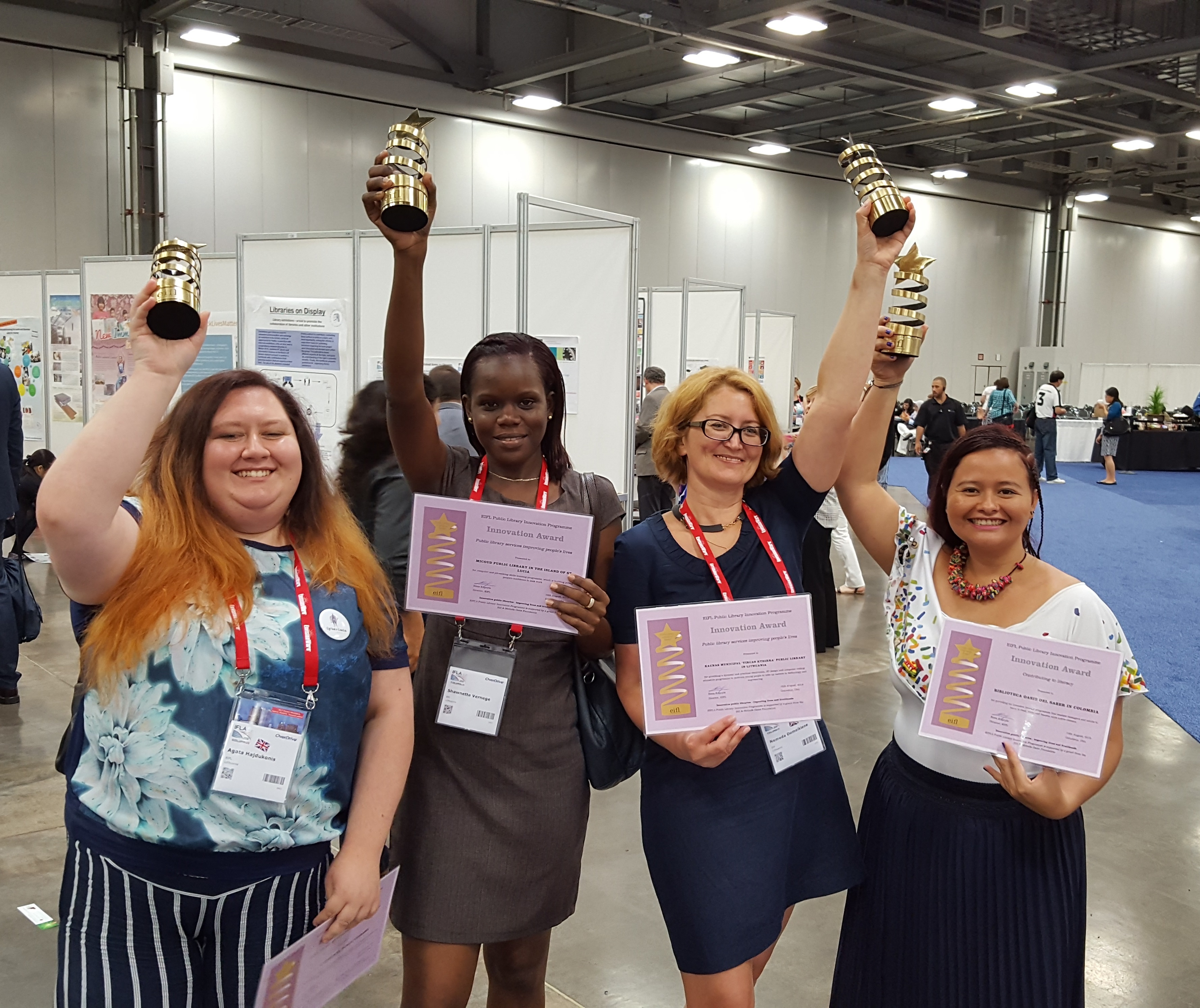
“Since winning the EIFL Public Library Innovation Award we have become a model in our country for innovative public library practices and our practices and services are being successfully replicated in other libraries.” - Ana Maria da Silva, Director, Biblioteca Pública Estadual do Espírito Santo, Brazil.
To recognize innovative services being implemented by public libraries in developing countries, we launched the EIFL Public Library Innovation Award. Each year we look for new ideas and approaches to using technology in public library services that support community development. Since 2011, in annual calls, we have awarded 43 winners in 22 countries in Africa, Asia, Europe, Latin America and the Caribbean.
The awards have provided further inspiring examples of how public libraries are transforming people’s lives.
AN INCREDIBLE JOURNEY
“We at TASCHA have always looked to EIFL-PLIP for inspiration for how public libraries can change lives in very different contexts with limited resources. We are particularly impressed with the evolution of PLIP library programmes involving digital technologies over the past 10 years – from basic access to more imaginative uses that build individual and community capacities in truly transformative ways. EIFL-PLIP has influenced TASCHA’s research as we seek to uncover the qualities of successful librarianship and generate new models for effective library programs and services.” - Chris Coward, Director, Technology & Social Change Group (TASCHA), University of Washington Information School.
For the EIFL-PLIP team the past 10 years have been an incredible journey of exploration and learning. We are proud to have made this journey with out-of-the-box thinking public librarians, visionary experts and inspiring partners from across the world. Thank you to everyone who has shared the experience with us. And a special thank you for all your good wishes for our 10th anniversary and to the Bill and Melinda Gates Foundation for financial support.
SHARE / PRINT






